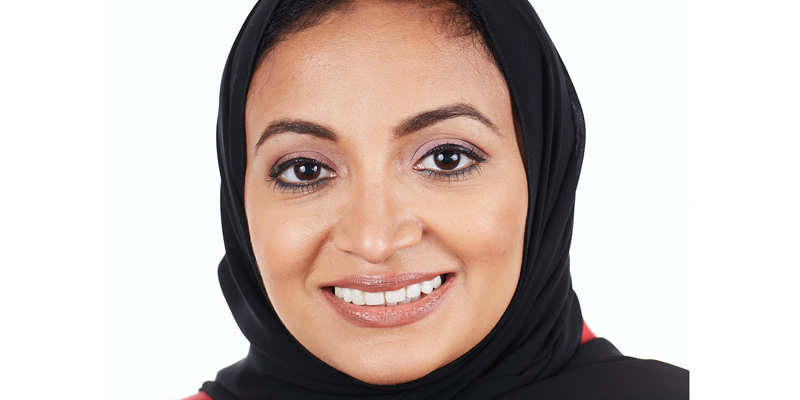Saudi physician-scientist Malak Abed Althagafi on her own struggles and what’s next for the kingdom.
Malak Abed Althagafi spent much of her childhood out of school and on planes, travelling between London, Riyadh and Boston to receive treatment for her rare genetic condition.
Frustrated, isolated and struggling with her studies since she often had to miss class, Althagafi felt out of step with her peers and angry at the hand she’d been dealt.
“Childhood for most children is a time for playing, having fun and having wild fantasies,” she says. “Mine was neither perfect nor normal.”
Read:
Meet Saudi Arabia’s first female rock climbing instructor
Amal and George Clooney take to the street to protest gun violence
“But, God’s will was that these circumstances would be the reason for my strength and ambition.”
That ambition of Althagafi’s is considerable. These days, she’s one of Saudi Arabia’s leading genetic scientists, holding leadership positions at the Saudi Human Genome Project and King Fahad Medical City in Riyadh. She also teaches part-time at Harvard Medical School.
Althagafi started on the path that would lead her to those achievements when she won one of the first rounds of Saudi Arabia’s King Abdullah Scholarship.
“It was like a gift from the sky,” she says. “There was no such program like that before my graduation. I was almost getting into depression before they announced it during the second half of my internship.
“It was not a perfect set-up nor good stipend in the beginning, but it was my only opportunity to go abroad.”
Travelling alone to the United States with US$1,000 in her pocket, Althagafi was determined to make the most of it. She was just 23.
“During my first flight from Jeddah to Boston, I said to myself: Malak, there is no time for excuses, it is time for hard work and unleashing [your potential].”
Read:
These three Middle East-born artists need to be on your cultural radar
How Queen Rania is helping support female entrepreneurs in Jordan
While much of that hard work was obviously in the classroom, Althagafi was also keen to change her peers’ minds about women from Saudi Arabia. She believes that human contact is the way to break down misconception.
“Saudi Arabia, like any other country, has positive and negative sides. It’s only a lack of familiarity which keeps [the stereotypes going],” she says.
“Visit us, and understand our values. Let us communicate as humans again.”
In both Saudi Arabia and the wider world, Althagafi sees a long journey ahead for women in science.
“Lately, we have seen a great tendency towards supporting scientific research in Saudi Arabia from our government [and] a leaning towards making our society a cognitive one, but we still lack a lot,” she says, adding that she feels optimistic about the Kingdom’s direction.
“People fail to get along because they fear each other; they fear each other because they don’t know each other; they don’t know each other because they have not communicated with each other.”
— Martin Luther King, Jr.— ملاك عابد الثقفي (@MalakAbed) March 24, 2018
“Women are also governed by family circumstances, which make it harder to continue in such fields. Sometimes we need positive discrimination to enable girls to engage in various scientific fields taking into account their social and physiological circumstances.”
Althagafi sees the growth of Saudi women in leadership positions as a huge positive.
“This gives Saudi girls the power to dream that they can reach their potential in many areas,” she says.
“I want to see Saudi women present in every company board and in every sector as a leader.”
Images: Supplied












